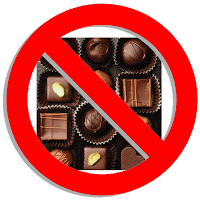NOT RECOMMENDED!!!
Want your pet to indulge in Thanksgiving dinner…safely?
...just
follow the recipe below!*
Thanksgiving Day Indulgence Recipe for Dogs and Cats:
Turkey – white meat, roasted or boiled, no
skin or bone 1
cup chopped 200 kcal
Sweet potato – baked, with
skin, no salt 1
cup mashed 180 kcal
Acorn squash – baked, no salt,
no skin 1
cup cubed 115 kcal
Green beans – frozen,
boiled, no salt 1
cup 40 kcal
4
cups 535 kcal
Serving Sizes for Toppings:
Cats and dogs up to 20#:
Top ½ usual serving of
regular food with ½ cup of mixture above
OR
Top with approximately 50
kcal of a single option from above.
Dogs up to 20-40#:
Top ½ usual serving of
regular food with 1 cup of mixture above
OR
Top with approximately 150
kcal of a single option from above.
Dogs over 40#:
Top ½ usual serving of
regular food with 1 ¼ - 1 ½ cup of the mixture above
OR
Top with approximately 200
kcal of a single option from above.
Cooking tips:
For Turkey,
up to 1 ½ tsp. of Olive oil may be used to roast.
Seasonings: safe options
include turmeric, ginger, cinnamon, and nutmeg.
Use up to ¼ tsp. of each per 1 cup serving.
Combining –
this works well, especially for cats and small dogs. After cooking, place in a food processor or
blender to mix into pate consistency.
Feed 1 topping portion per day and save the remaining amount in the refrigerator for
up to 5 days of additional toppings. Larger
batches can be made and stored in the freezer.
*This is a generalized recipe is based on a healthy
pet with a normal digestive system.
Although this recipe should be safe for almost any cat or dog, each pet
is different and there is no guarantee that he or she will not experience
gastrointestinal effects from being introduced to new foods.
**This recipe has not been formulated for long term,
complete nutrition.
Fresh, whole foods can enhance your pet’s
health if prepared and fed appropriately!
If you would like to learn more about home cooked
toppings or complete home cooked nutrition for your pet, Dr. Nell would be
happy to see you for a Nutrition Consult at Lombard Animal Hospital located at
607 NE Lombard ST, Portland, OR 97211.
You can schedule today by calling
503.285.2337!
























